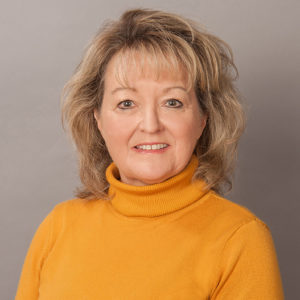
Who is Carla?
Carla Hubbard, of Indianapolis, Indiana, has been a professional educator since 1983. She spent one year as a high school guidance counselor, but all the rest have been at the elementary level in various capacities. She has served as a classroom teacher at various levels, an elementary school counselor, a teaching and learning coach, an assistant principal, and a principal on several campuses in every socioeconomic class, from inner city urban to rural communities. Carla provides training through aha! Process in A Framework for Understanding Poverty and Emotional Poverty.
Carla’s Credentials, Degrees, and Certifications
- Associate of arts degree from Lincoln Trail College, Robinson, IL
- Bachelor of Science in Elementary Education from Indiana State University, Terre Haute, IN
- Master of Science in School Counseling from Butler University, Indianapolis, IN
- Certification in School Administration from Butler University, Indianapolis, IN
- Certification in Educational Neuroscience from Butler University, Indianapolis, IN
Work History
- Classroom Teacher, Small Town, Rural: IL
- Classroom Teacher, Urban: IPS, MSD Pike Township, Indianapolis, IN
- High School Counselor, Small Town, Rural: IL
- Elementary School Counselor, Urban: MSD Pike Township, Indianapolis, IN
- Teaching and Learning Coach, Rural: IN
- Assistant Principal and Principal, Suburban: Brownsburg, IN
- Principal, Small Town, Rural, 80% Poverty: Connersville, IN
Publications
- Kindergarten Carnival, “Original Children’s Songs for a Typical Kindergarten Day”
- Let Your Light Shine, “Original Educational Songs for Elementary Students to Promote Self-Esteem”
- “Original Educational Songs for Elementary Students to Promote Emotional Reset”
Carla’s aha! Moment
I encountered Dr. Ruby Payne about halfway through my career, and her presentation made such an impact that I completely changed the way I practiced my work and completely changed the direction of my career. It has been an honor to share her research from Framework with three different school districts, and once I became acquainted with her book Emotional Poverty, I completely changed my school discipline structures to reflect her findings. I have experienced firsthand how successful the strategies and practice tips are with children and how students can flourish when the adults working with them adapt their understandings.
Several years ago, I was having a rather heated debate with my superintendent. I was being respectful, of course, but we disagreed tremendously about the importance of social/emotional health in schools with regard to discipline plans. He said, “Carla, the schools of today don’t have time for all this hooey. We need hard-lined, quick, and immediate discipline tactics that get everyone back on track immediately so we can keep our test scores up. The bottom line is that it is all about test scores.” In my heart of hearts I knew this mindset was not good for kids because there are no “throwaway” kids, but I did not have the understanding and the science behind my belief system.
As soon as Dr. Payne’s book Emotional Poverty came out, I purchased a copy and read it cover to cover immediately. I had my emotional aha! moment when I read this material because I now had the research support for what I knew in my heart all along. Emotional Poverty crosses all races and across all economic levels. Understanding the ways and means of how the brain processes emotions is critical for today’s schools and for the success of all students. Reading Emotional Poverty and attending Dr. Payne’s workshop gave me the new lens for discipline that I needed to lead my school forward.
Carla’s Passions
My passions are about service to others. Be it children, staff, teachers, or parents, helping other people be successful gives purpose to my life.
What does Carla do for fun?
I enjoy music of all kinds, love live music, and spend any free moments with my family and friends—mostly laughing!
